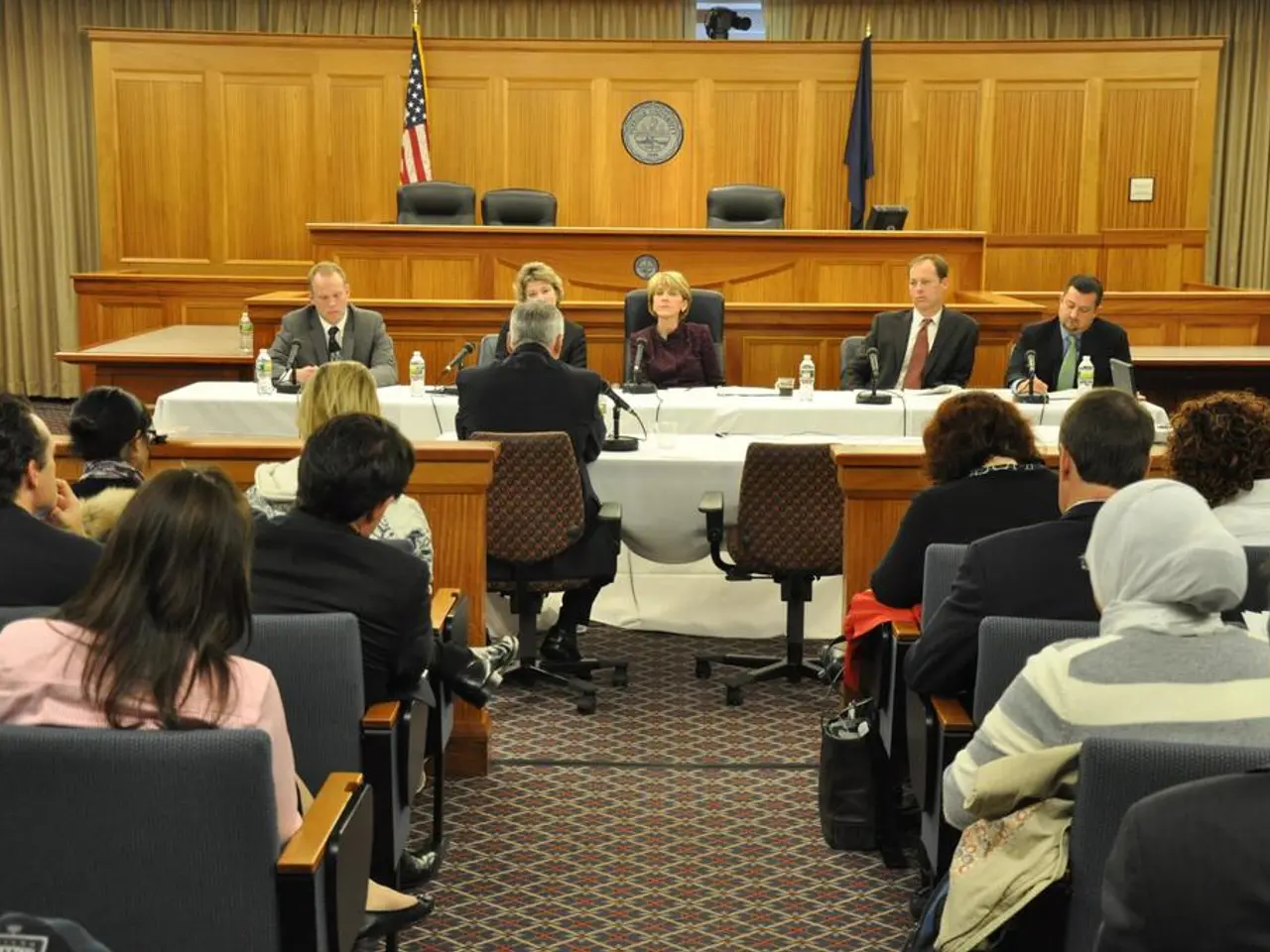Minister of Health heads international assembly at APEC meeting
Taiwanese Delegation Discusses Healthcare Innovations at APEC Summit
Minister of Health and Welfare Shih Chung-liang led a Taiwanese delegation to the APEC health summit in Seoul, where they discussed various healthcare-related topics with representatives of major economies.
During the summit, the Taiwanese delegation visited the offices of the South Korean National Health Insurance Service and the Health Insurance Review and Assessment Service to understand the policies for national insurance and long-term care in South Korea. The discussions focused on Taiwan's experience in medical artificial intelligence (AI), healthy aging, and youth mental health.
One of the key highlights of the Taiwanese delegation's visit was the presentation of an AI model developed using data from the National Health Insurance program. This AI model assesses patients' risk of developing diabetes and provides personalized information and education, as well as suggestions for health management. The model also allows for earlier medical intervention when necessary.
In addition, the delegation discussed the nation's plans for the second and third iterations of Taiwan's long-term care program. The second iteration has a service coverage rate of 85 percent, while the third iteration will incorporate innovative technology and build a comprehensive healthcare ecosystem that includes at-home care, medical assistance, and social welfare programs.
The joint statement issued by the representatives of major economies at the summit, titled 'Connect, Innovate, Prosper: Building a Healthy, Smart and Aging-Responsive Society,' aims to use digital health and AI services to set up cancer prevention from birth to death, foster mental health and welfare, and expand health-related collaborations within APEC for a healthier and more resilient Asia-Pacific region.
As part of its commitment to mental health, Taiwan has established three national AI centers: the Center for Responsible AI in Healthcare, the Center for External AI Validation in Healthcare, and the Center for Clinical AI Impact Evaluation. These centers aim to foster a transparent, trustworthy, and patient-centered ecosystem.
Furthermore, the nation will invest NT$120 billion (US$3.97 billion) between 2023 and next year under the Planned Response to Taiwan's Ultra-Aged Society policy. The project will establish mental health learning platforms to promote mental health knowledge for specific age groups, and will provide three free mental consultation sessions annually for people aged 15 to 45.
Taiwan's national psychological resilience promotion project, while not specified in the provided search results, aims to improve general mental fortitude. The start date of the project's implementation is also not known at this time.
Shih held talks with representatives of major economies at the summit, discussing mental health, infectious disease prevention, and medical technology issues. The discussions were aimed at finding solutions to common healthcare challenges faced by the Asia-Pacific region.
In conclusion, the Taiwanese delegation's visit to the APEC health summit was an important step towards fostering collaboration and innovation in healthcare within the Asia-Pacific region. The discussions and plans outlined during the summit will undoubtedly have a significant impact on the region's healthcare systems, particularly in the areas of AI, mental health, and long-term care.
Read also:
- Comprehensive Overview of Addressing Traumatic Brain Injuries (TBIs)
- Enhanced Health Services Provisioned by San Diego Academic Health Partnership Continues During COVID-19 and Beyond
- Vaccination drive targeting infants under 6 months old against bronchiolitis in the region of Andalucia
- Biopsy Basics: Objectives, Varieties, and Potential Hazards - Healthline Illuminated






